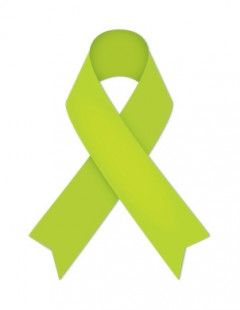Your cart is currently empty!

The Drawback to Mental Health Awareness Month

At its core, Mental Health Awareness Month is a time for people to learn more about mental health conditions and, ideally, seek out help for them. Mental health charities all over the country plan events, awareness rallies, and fundraisers. Media outlets run stories discussing the importance of mental health care and its role in our society. Social media feeds have memes, quotes, and generally positive information about mental illness. While the conversation is still mostly a quiet one – there is a definite conversation. What could possibly be the drawback of that?
Mental Health Awareness Month serves as a reminder of just how much work we have ahead of us. Seeing how much farther we need to go to effect real, lasting change is disheartening. Every time someone thanks me, or an audience applauds, I get caught up in the moment. I feel like we are there, that the fight is over and we have won! But needing to set aside a specific week or month to raise awareness of something is evidence that, in general, most people aren’t paying attention.
Having a month dedicated to your cause seems like a great thing, and in so many ways, it is. However, one of the qualifications of having a month to make people aware of your cause is that people aren’t already aware of it. It is a bit like feeding the homeless on Christmas and Thanksgiving, but not taking into consideration that homeless folks need to eat every day.
People Aren’t Just Sick During Mental Health Awareness Month
People aren’t just sick during Mental Health Awareness month. People don’t need love, understanding, hope, and compassion during one month only. That is a daily need and one that everyone  deserves.
deserves.
We need to be aware of mental health and mental illness concerns every day. We don’t need a mental health month; we need mental health every single day. What we need is a society aware of mental health. Not just sometimes, not just in May, and not just when a crisis occurs.
If we could get our society to collectively raise the level of tolerance and understanding of these invisible and misunderstood illnesses, imagine how much better off we all would be.
This is the biggest drawback to Mental Health Awareness Month. It shows us what could be – what should be. All of the positive stories, conversations, media coverage, and so forth will largely disappear on June 1. We will be back to mostly negative portrayals and business as usual. All of the hope, understanding, and positive messages will dry up.
Perhaps the biggest drawback to Mental Health Awareness Month is that it ends.
This article previously appeared on Psych Central as The Downside of Mental Health Awareness Month.

2 responses to “The Drawback to Mental Health Awareness Month”
I couldn’t possibly agree more. The mental health care system is this country is so broken and despite the fact that suicide rates are at a 30 year high, despite the fact that suicide is 2nd leading cause of death for youth ages 10 to 24 and leading cause of death for LGB youth in this demographic and leading cause of death on college campuses, this epidemic garners little national attention. It quite honestly boggles my mind. I want to say to America, please wake up. Our children are dying here. Four out of 5 mentally ill are behind bars with 85% returning because of a total lack of re-entry services. Up to 50% of those in the bipolar community attempt to take their own lives with at least 11% succeeding. When is enough enough? Yes, each and every day should be about mental health. Each and every one of us is responsible for suicide prevention. And until we all start getting that I fear nothing will change.
Kerry Martin, CEO & Founder, Hope Xchange Nonprofit
“Preventing Suicide and Improving Mental Health in Youth, LGBTQA+ and Bipolar Communities”
Thank you for your comments and I couldn’t agree more. Thanks for all you do!